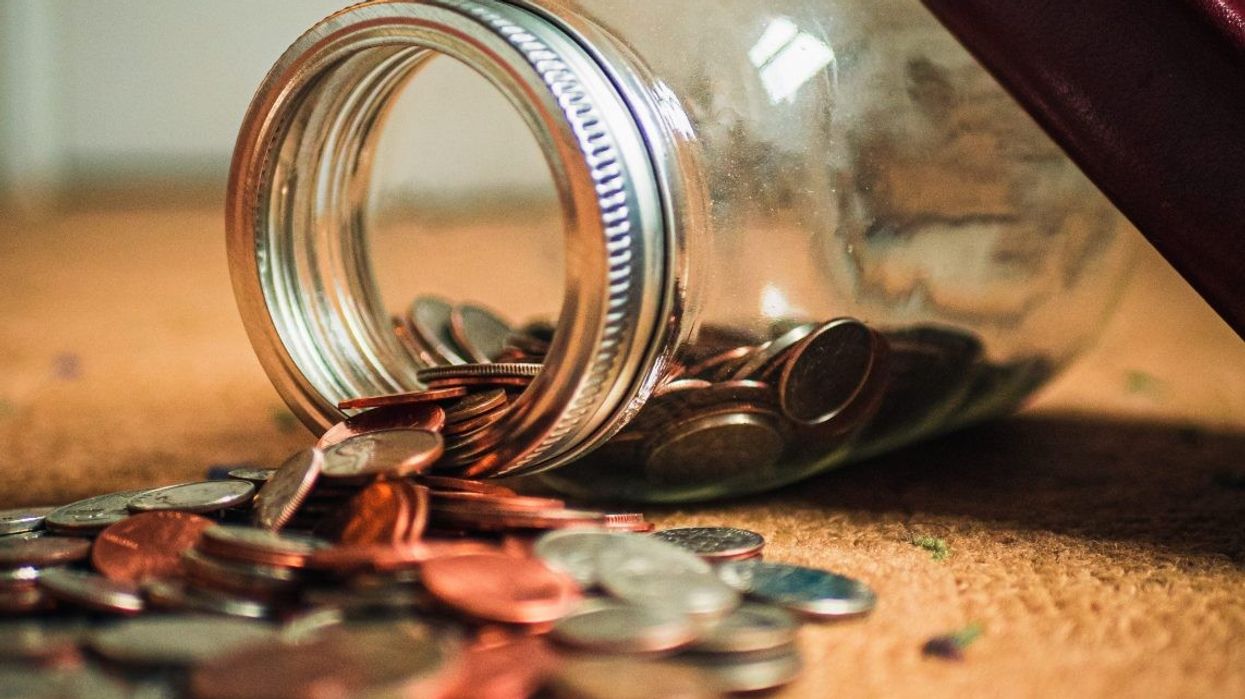If you’re finding it a challenge to direct money towards your savings, you’re not alone. Over 53 per cent of Canadians live paycheque to paycheque. For the first time in a century, Statistics Canada reported that the rate of household savings fell to its lowest level of 0.7 per cent during the first quarter of 2019. Add to this reality the fact that millions of Canadians are also drowning in debt and our country’s fiscal situation becomes even more dismal.
What’s shocking is that the rate of household savings fell so dramatically from last year’s numbers. According to Better Dwelling, the rate was 78 per cent lower compared to the last quarter of 2018 – approximately 63.2 per cent lower. Vice painted an even grimmer picture, stating that nearly half of all Canadians are $200 away from being broke.
READ: More Canadians Feeling ‘Maxed Out’ By Household Debt: Survey
Or have we all just become house poor? With the social pressure to achieve home-ownership, the weight of a mortgage could explain the lack of savings. Canadian mortgage debt has been growing 3.7 per cent annually, up to a total of $1.57 trillion. New data from Scotia bank revealed that last June, household mortgage credit saw its largest month-over-month increase in the past two years at 5.2 per cent.
A Scotiabank economist, Juan Manual Herrera explained the report, “Mortgage growth has surely rebounded after a period of deceleration from early-2017 to its mid-2018 trough which was induced by a series of measures aimed at tackling runaway home prices”.
But this might not explain the shortage of savings for non-home-owners living in Toronto, many of whom are struggling just to make ends meet. Debtcare.ca reports that the debt-to-income ration in Toronto increased from 88 per cent to a shocking 150 per cent over the past 10 years.
READ: Millennials Make More Money, But Have More Debt Than Gen Xers
Sure, life in Toronto might be expensive but is it really worth not planning for retirement? Or are people just unable to save because of the ongoing, years-long burden of student loans? With Canadian students owing upwards of $28 billion – in addition to covering their rent, car bills, groceries, and credit card payments - it’s hard for people to imagine themselves after 65.
Michael Nicin, executive director of the National Institute on Aging, explained to Better Dwellings: “Most people, in general, don’t consider their future selves multiple decades in advance. They’re more concerned about current priorities — getting ahead, staying ahead, buying a home, going through school, daycare, kids’ education.” Shockingly, Canadians are putting away the same amount of cash they did 40 years ago.
READ: 1 In 5 Canadians Will Liquidate Assets To Clear Debt This Year
While times have certainly changed, investors are beginning to view the lack of household savings as a millennial problem? CBC News stated that the seductive ease of ordering out via food apps like UberEats and SkipTheDishes is to blame. One millennial, Leslie Hacker, totalled her take-out order at $1,000 a month. “It seems like a lot, but when I did the math, that’s about 35 dollars a day,” which doesn’t seem that crazy anymore, to be honest,” she said.
While the Bank of Montreal reported that millennials on average had $28,821 in RRSPs compared to $15,377 in 2016, the numbers don’t reflect the amount necessary for a real retirement plan. Financial experts say you should save at least 15 per cent of each paycheque.
READ: Home Equity Spending Sprees: How HELOCs And Record Debt Are Threatening A Financial Crisis
“If we want to solve the retirement conundrum — because it is frightening with the aging population — it’s not just about individual households. There’s a social factor to consider when it comes to public support programs for seniors. Are they going to be sustainable with the aging population that hasn’t saved for itself?” a Better Dwelling analyst asked. BNNBloomberg.ca reported that a third of Canadians don’t have any savings at all.
With StatsCan estimating that overall household savings during the second quarter of this year was just at $2.2 billion, declining by 78 per cent from Q1, it’s time for Canadians to pay attention.
READ: High Levels Of Household Debt Could Spell Disaster For Toronto And Vancouver
After all, more than half of American millennials interviewed by the Economist believe they will become millionaires – somehow.
But magic can’t be the game-plan when it comes to retirement, which is coming whether millennials want to believe it or not.





















